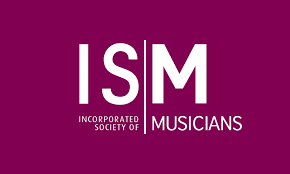The EBacc and the Importance of Arts Subjects in Schools
Posted on 30th December 2015 at 14:00

There has long been discussion about the structure of secondary education. Recently this has centred around the English Baccalaureate (EBacc), a school performance indicator linked to the General Certificate of Secondary Education (GCSE).
The EBacc is designed to measure the percentage of students in a school who achieve five or more A* to C grades in GCSE mathematics, sciences, foreign languages, history or geography. It is called a baccalaureate, but it is not like the French baccalauréat, which qualifies students for entry into universities and tertiary education.
In June 2015, the Conservative Party announced as part of its election manifesto that it would make the English Baccalaureate compulsory for every secondary school student in the country. This idea was motivated by two common perceptions, the dumbing-down of GCSEs and the fall in the number of students studying foreign languages and science. The announcement was criticised by teaching unions as being broadly driven by political ideology.
As consultations reach their final stage, the Music Workshop Company spoke to Derin Adebiyi, Public Affairs Officer at The Incorporated Society of Musicians (ISM) about the EBacc. Derin explains the ISM’s concerns that the EBacc is damaging to Arts and the Creative Industries, forcing out creative subjects in a measure designed around accountability rather than educational importance.
“The EBacc proposal was met with concern by many key creative industry figures including Arlene Philips CBE, Robert Lindsay, Philip Pullman CBE, Julian Lloyd-Webber and Harry Treadaway.
The intention is for the EBacc effectively to become compulsory, with the Education Secretary expecting ‘to see at least 90% of students entering the EBacc’ by turning the EBacc from a (relatively) harmless league table into a headline measure for school accountability.
In response to these plans, the Incorporated Society of Musicians has relaunched the cross-sector campaign Bacc for the Future.
The Bacc for the Future campaign was first coordinated by the ISM in 2012 following proposals by the then secretary of state for education, Michael Gove, for a new examination system for England, Wales and Northern Ireland. Gove’s plan focused around five academic subject areas, with art, music, design and technology, and drama all absent from the consultation document for the proposed EBacc certificate.

The campaign successfully called on the Government to slow down the pace of reform, resulting in a partial U-turn and the announcement of a ‘new eight-subject measure of GCSEs’ in 2013.
This revised eight subjects included English, maths, three science subjects, languages, history and geography, and three ‘other’ subjects, such as art, music or religious education, and was known as Progress 8.
Michael Gove himself called the Progress 8 accountability measure, which allowed creative subjects to count towards schools “more meaningful,” when it was introduced in 2013.
Since the 2015 General Election, the Conservative Government has announced the finer details of their EBacc proposal and launched a consultation on plans to make the EBacc a headline measure for schools, and for it to be given a more prominent role within the Ofsted Framework. The consultation, which was launched in a speech to Policy Exchange by the Education Secretary Nicky Morgan, ends on 29 January.
The ISM’s Bacc for the Future campaign, with the backing of over 20,000 individuals and 145 organisations from across the creative sector, is calling for people to respond to the consultation and to write to their MP opposing the EBacc.
Announcing the relaunch of Bacc for the Future, ISM chief executive Deborah Annetts said,
“The Government should seriously reconsider its new EBacc proposal. This is a rejection of the ‘more balanced and meaningful accountability system’ proposed under the last Government.
The Government is rightly focused on jobs, growth and a balanced budget. This policy undermines that ambition. The creative industries are worth £76.9bn per year to the UK economy, and the educational importance of creative subjects cannot be over-estimated. It should be a great concern to all of us that the department for education is playing fast and loose with the country’s economic and educational wellbeing.”

To support the campaign, visit www.baccforthefuture.com to find out more about the petition and how to respond to the consultation.
Share this post:




